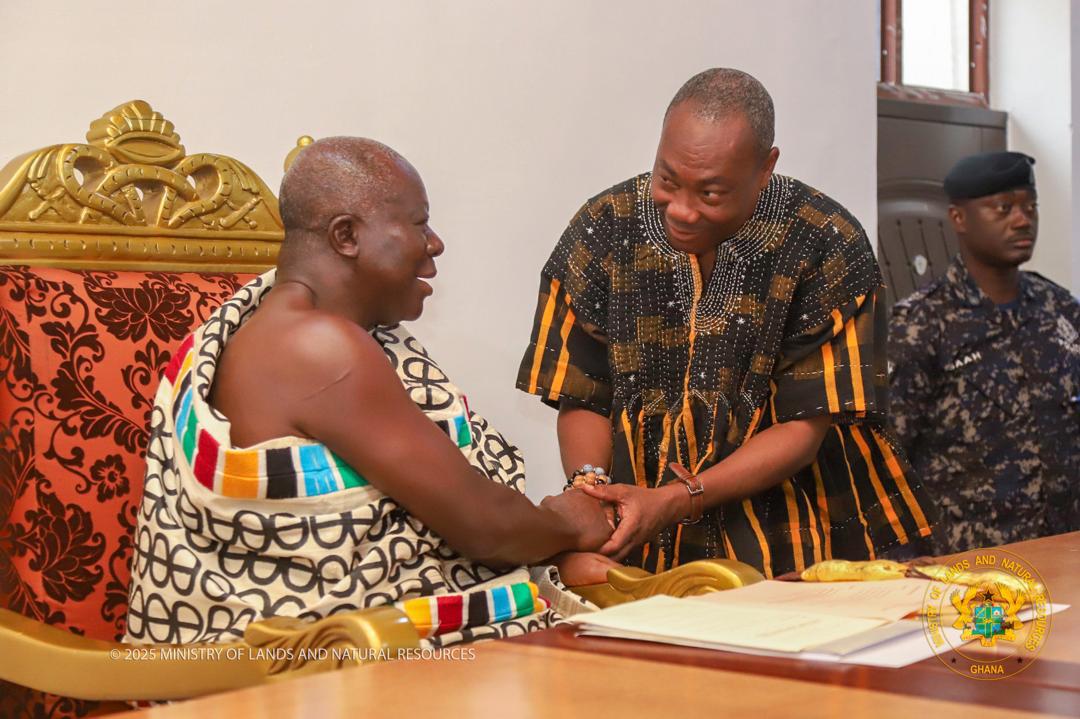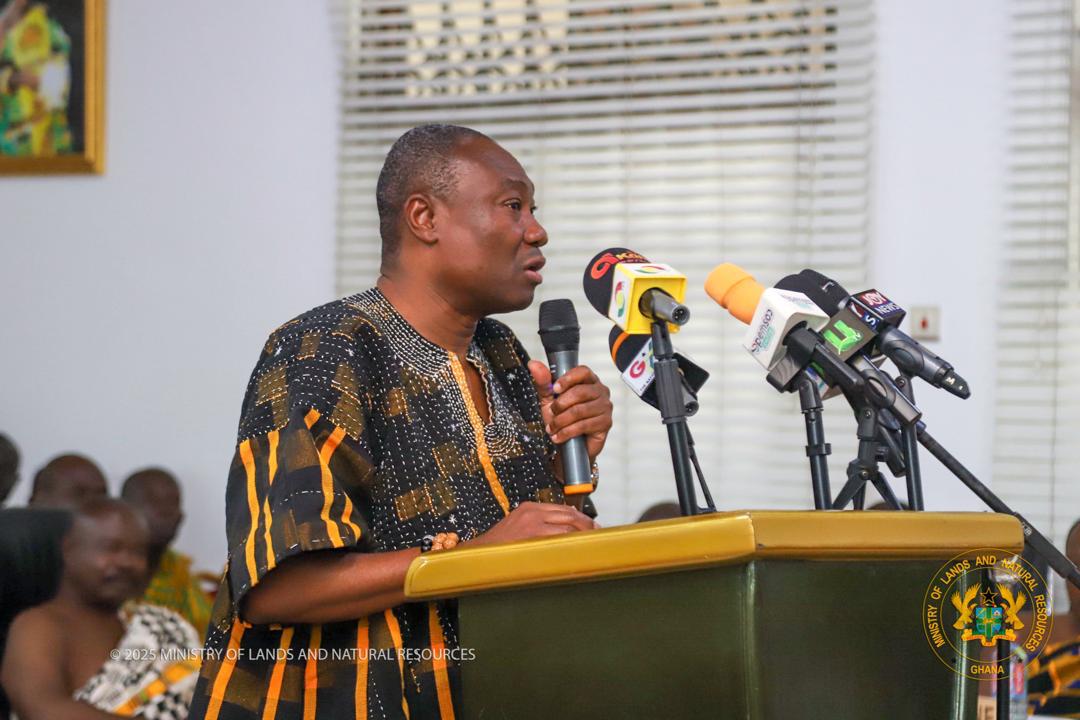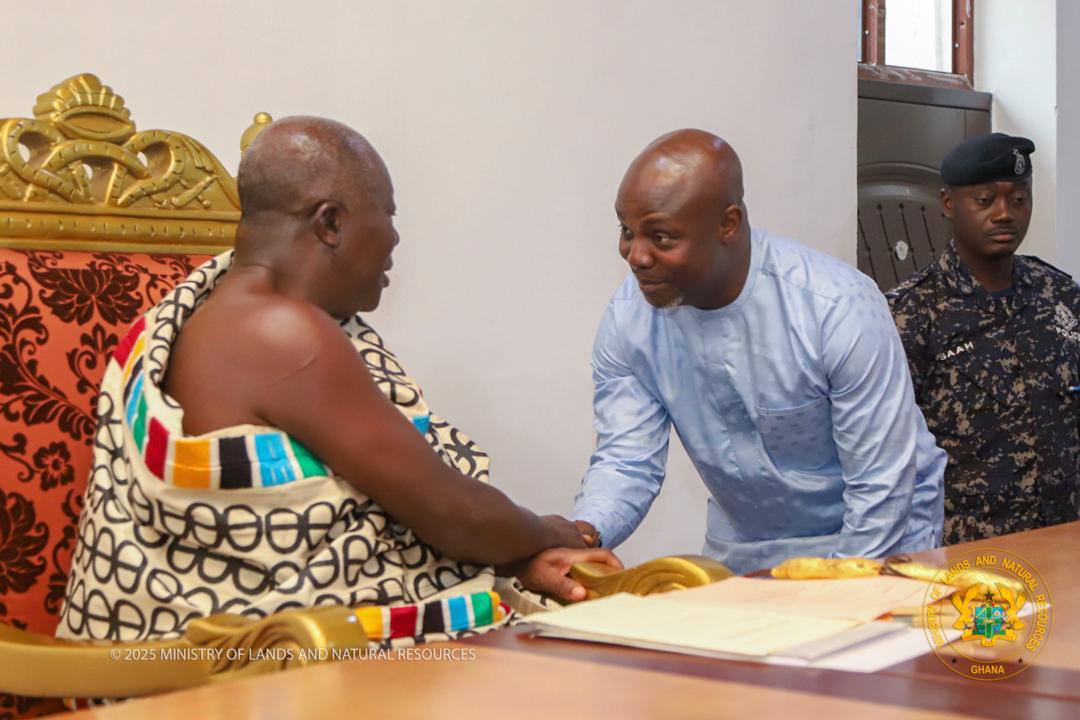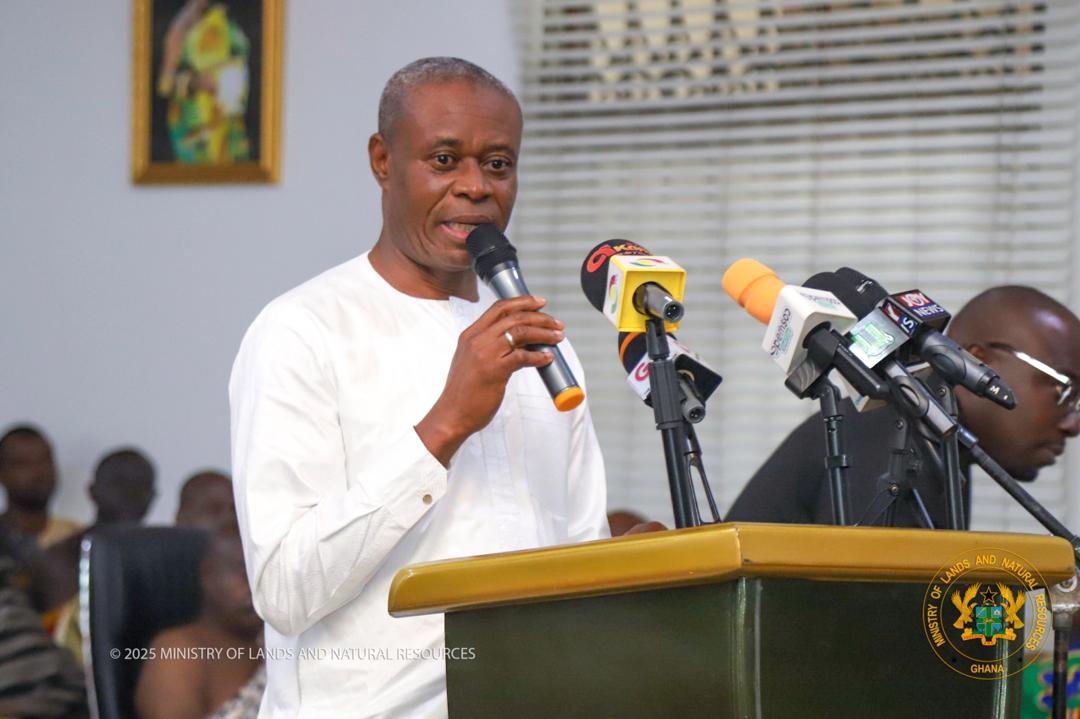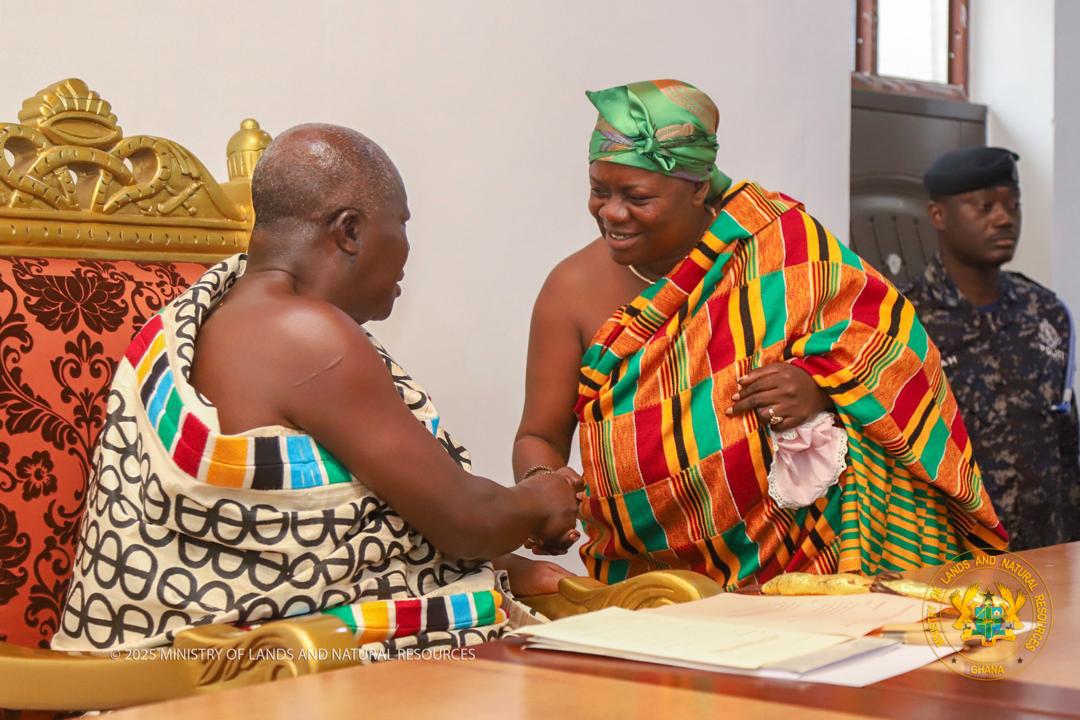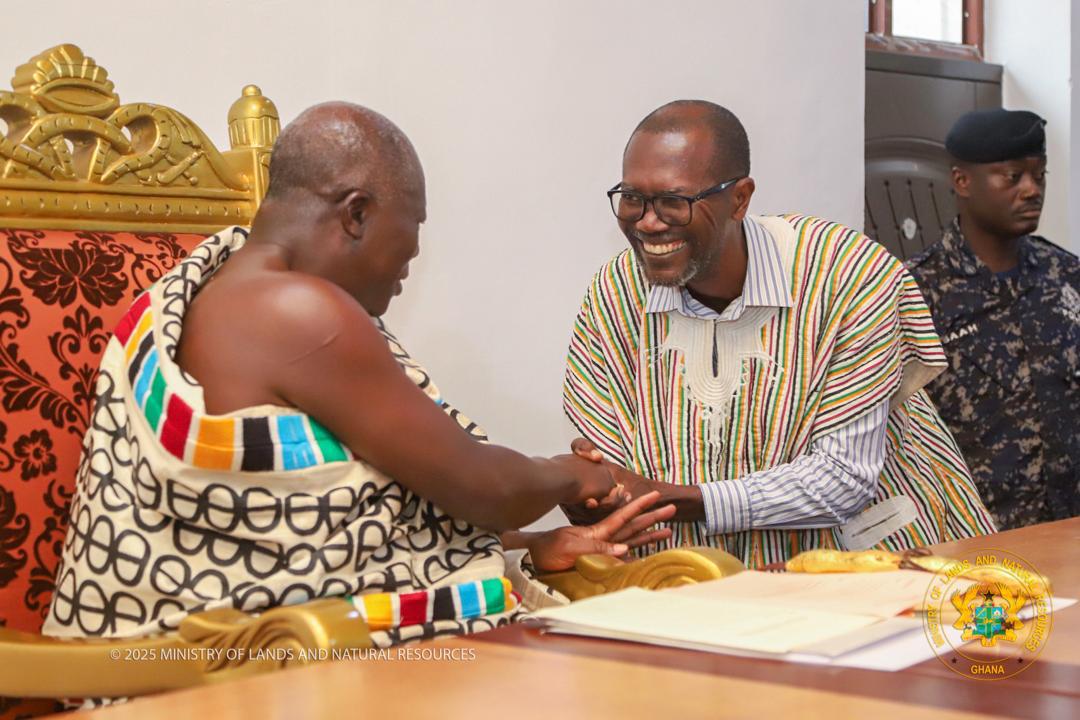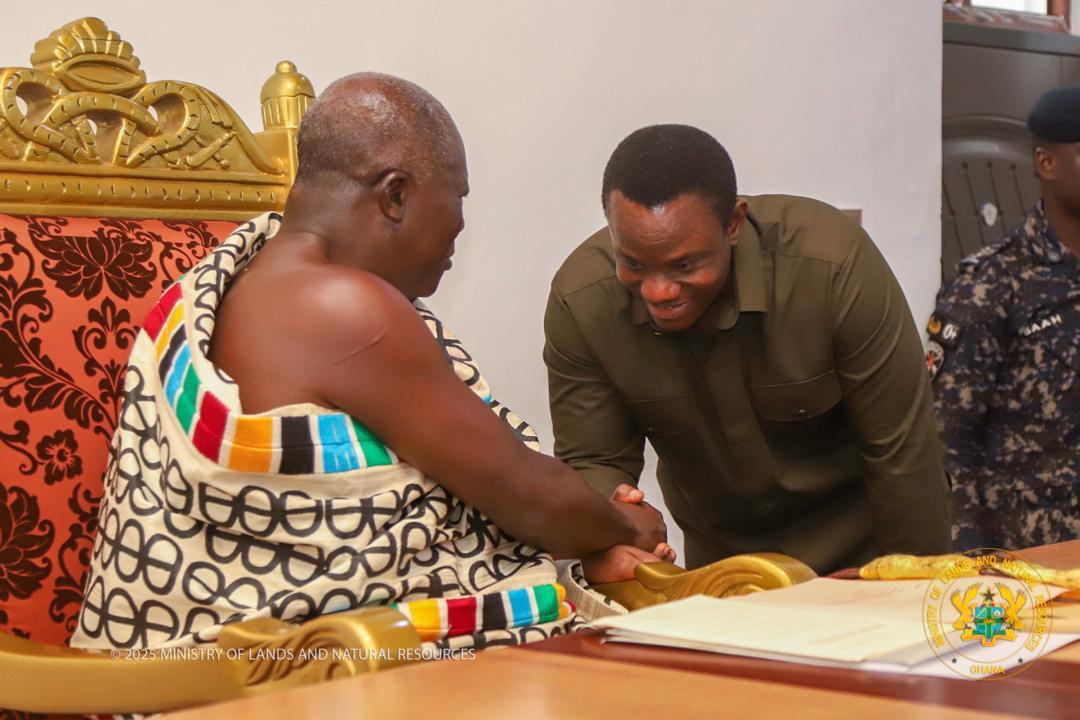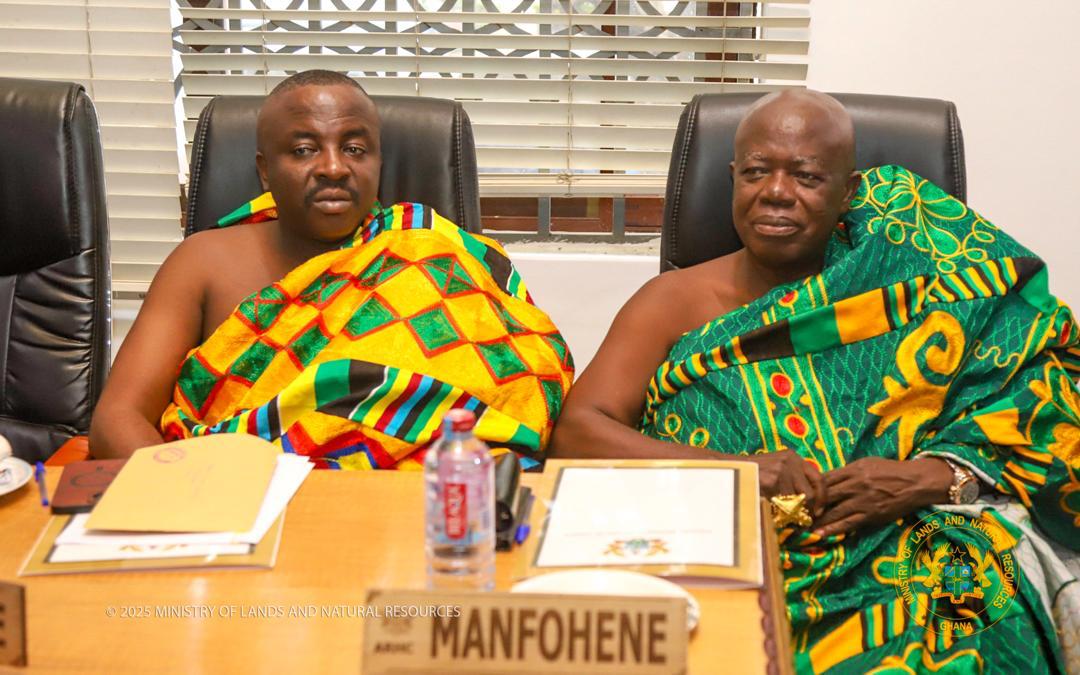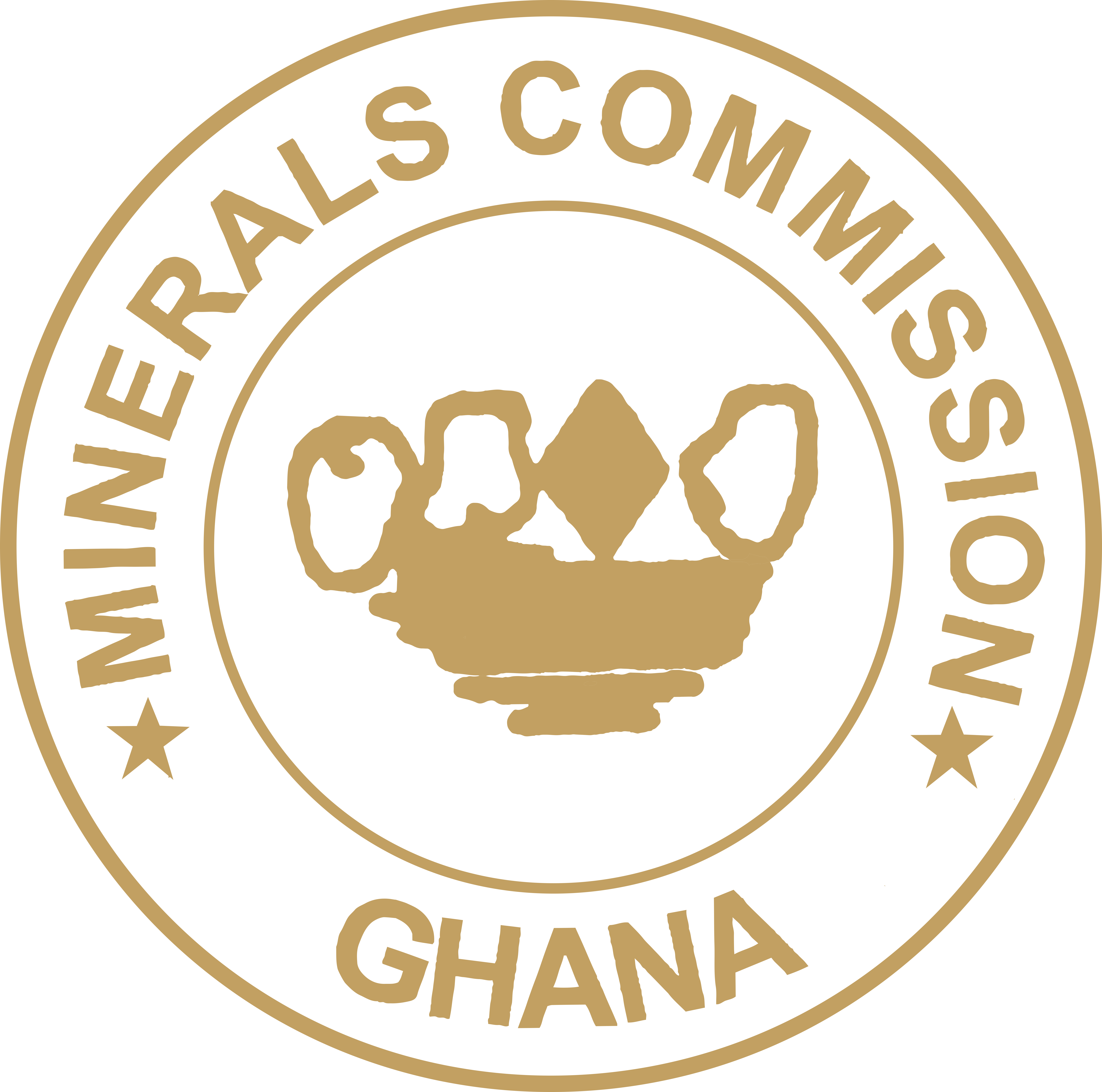GOVERNMENT DEEPENS RELATIONSHIP WITH TRADITIONAL AUTHORITIES THROUGH POLICY AND LEGAL REFORMS
The Honorable Deputy Minister for Lands and Natural Resources, Yusif Sulemana, has underscored the significance of the Ashanti Region as the epicenter of Ghana’s mineral wealth, particularly gold, which has been a cornerstone of livelihoods, economic growth, and historical heritage.
In an address to the Ashanti Regional House of Chiefs on July 18, 2025, Hon. Yusif emphasized that under the esteemed leadership of President John Dramani Mahama, the government is resolute in its commitment to rectify the historical imbalances and secure a more prosperous future for the benefit of all Ghanaians.
“We firmly believe, Nananom, that no mineral right, whether for small-scale, medium-scale, or large-scale mining, should be granted without the full involvement and consultation with traditional authorities,” he stated.
The Deputy Minister further revealed that the endorsement of traditional authorities will be a crucial requirement in the licensing process, ensuring that mining activities align with the needs and values of local communities.
Hon. Yusif announced the introduction of a Cooperative Mining Scheme, an innovative initiative that will enable local cooperatives, under the guidance of traditional authorities, to own and manage mining ventures in a structured and sustainable manner.
The Deputy Minister also commended the visionary leadership of Otumfuo, acknowledging his tireless efforts in promoting responsible mining practices and land preservation. From his interventions in addressing the challenges of illegal mining to his advocacy for sustainable development, Otumfuo has consistently demonstrated that progress must never come at the expense of Ghana’s heritage.
He emphasized that the review presents a timely opportunity to formalize and further leverage this leadership. We solicit your esteemed guidance to:
- Ensure that mining activities prioritize the interests of Ghanaians, rather than solely benefiting multinational corporations.
- Safeguard our lands and water bodies from environmental degradation, thereby preserving the nation’s natural heritage.
- Provide support to cooperative and local miners in establishing lawful and profitable enterprises that contribute to the nation’s economic development.
Nananom, the success of this policy initiative is contingent upon your wisdom and collaborative partnership. We therefore invite your valuable input on the following critical aspects:
- The most effective ways to integrate traditional oversight mechanisms into the licensing process, ensuring that local stakeholders have a meaningful say in mining activities.
- Strategies to strengthen community ownership and participation under the Cooperative Mining Scheme, thereby promoting local economic empowerment and sustainable development.
- Measures to ensure that miners are held accountable to the people and the land, fostering a culture of transparency, responsibility, and environmental stewardship.
The Asantehene, Otumfuo Osei Tutu II, advised that Ghana must move beyond a narrow focus on royalties when discussing the benefits derived from its vast mineral resources, particularly gold. According to the revered monarch, true national development lies in harnessing the full value chain of mineral exploitation, rather than settling for minimal returns in the form of royalties.
Otumfuo noted that while royalties play a role in resource management, they represent only a fraction of the potential wealth embedded in the country’s natural endowments.
He emphasized that Ghana, as a leading gold producer in Africa, must insist on meaningful local participation in mining operations, value addition, and infrastructure development in mining communities. The Asantehene also called for stronger regulatory frameworks to ensure that multinational companies operating in Ghana do not repatriate the bulk of profits without making impactful investments in the country.
He urged the Ministry of Lands and Natural Resources, the Minerals Commission, and traditional leaders to work collaboratively to champion policies that promote value addition and ensure equitable distribution of mining benefits.
He said the Minerals Commission must serve its purpose by helping to stop the devastation of the nation’s forests and water bodies through mining. Otumfuo admonished the Commission to step up its supervisory and monitoring roles to ensure that the right things are done and check the recklessness.
Mr. Martin Ayisi, the CEO of the Minerals Commission highlighted on the proposed amendments to the Minerals and Mining Act, 2006 (Act 703). He stated that the primary purpose of the proposed amendments is to address weaknesses in the current legal framework and enhance the management of the mining sector. Specifically, the amendments aim to tackle issues related to illegal mining, improve royalty collection, regulate foreign participation in small-scale mining, and strengthen environmental and social safeguards.
The proposed amendment aims to establish a more resilient, transparent, and sustainable mining sector in Ghana by addressing prevailing vulnerabilities, aligning with global best practices, and fostering prudent resource stewardship, thereby ensuring the long-term benefits of the nation’s mineral wealth. he added.
Mr. Benjamin Aryee, former CEO of the Minerals Commission and advisor to the Minister, presented a comprehensive review of the 2014 Mining Policy. He spoke at the gathering, bringing valuable expertise to the discussion and sharing his knowledge to further inform the stakeholders.
